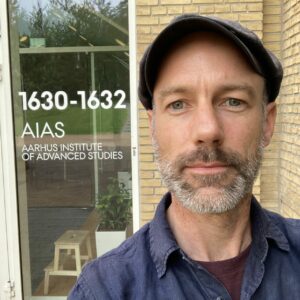frontiers fellowship – round 1
Samuel Schlaefli
Nationality
Swiss
Career-Level
Established
Host Institution
Aarhus Institute of Advanced Studies
Denmark
Residency Project
Stories of transformation – increasing food security and ecological health through agroecology
Agroecology is a science, a set of practices and a social movement. It is defined by the Food and Agriculture Organization of the United Nations (FAO) as “an integrated approach that simultaneously applies ecological and social concepts and principles to the design and management of food and agricultural systems”. As early as 2008, 60 governments, more than 400 scientists from all regions of the world and the FAO called for the expansion of organic farming and agroecological methods to promote small scale farmers worldwide.
I have been reporting about agroecology projects and initiatives in Europe and the Global South in the past two years and became ever more interested in the potential of this concept for the transition to a more sustainable food system. My stay at Aarhus University will allow me to deepen my knowledge in agroecology and to assess the potential for a sustainable and just transition in our food system. The Department of Agroecology at Aarhus University does basic, strategic and applied research in issues regarding the interaction between climate, soil, plants, animals and people in agro-ecosystems with a focus on promoting health, sustainability and environmentally friendly production of food, feed, energy and bio-based products. More than 120 scientifical staff work on different aspects of agroecology, like soil fertility, plant pathology, genetics, crop health, biotechnology, nutrients, agricultural systems, soil physics, climate, environment, water systems.
Since 2007, I have built a professional career as a freelance science reporter, editor and storyteller. Originally trained in Chemistry, I later studied Journalism and Social Sciences and obtained an MA in Changing Societies at the University of Basel. Over the years, I became more interested in how natural and social phenomena are interlinked. My constructive journalism is based on scientific facts and through compelling storytelling touches the audience’s heart and brain.
After completing several highly acclaimed journalistic projects, I am currently looking for opportunities to further develop my skills and advance my career in science journalism. I am searching for new ways to inspire broad segments of the population to engage more deeply with journalism that can make a difference in people’s everyday lives. Science, like journalism, is a central pillar of a functioning democracy, but requires constant critical reflection through professionals. During the fellowship, I will expand my toolbox as a science journalist in order to be even better equipped for complex, in-depth and society- changing reporting.
My initial motivation for applying for the Frontiers programme was to have time to work on a project that I am passionate about and to delve deep into the research behind it.
It’s a great opportunity to do this in an institution where you can interact with researchers who are doing cutting-edge science in your area of interest. As I am currently very interested in agroecology and sustainable food systems, I decided to apply together with Aarhus University in Denmark. Aarhus University has a department focused on agroecology, which conducts basic, strategic and applied research on the interactions between climate, soil, plants, animals and humans in agroecosystems. In addition, Aarhus University promotes transdisciplinary research and was therefore very open to having a science journalist at their institution to interact with scientists from different fields. The FRONTIERS residency will allow me to deepen my knowledge of agroecology and assess the potential for a sustainable and just transition in our food system.
Not only do I hope that my project will make a valuable contribution, based on the latest scientific knowledge, on how to transform the food system into something more sustainable. But I also hope to get some inspiration on how we can make science journalism even more effective and valuable for society. Last, but not least, I am very much looking forward to becoming part of the FRONTIERS community and to interacting with and learning from colleagues all over Europe.
